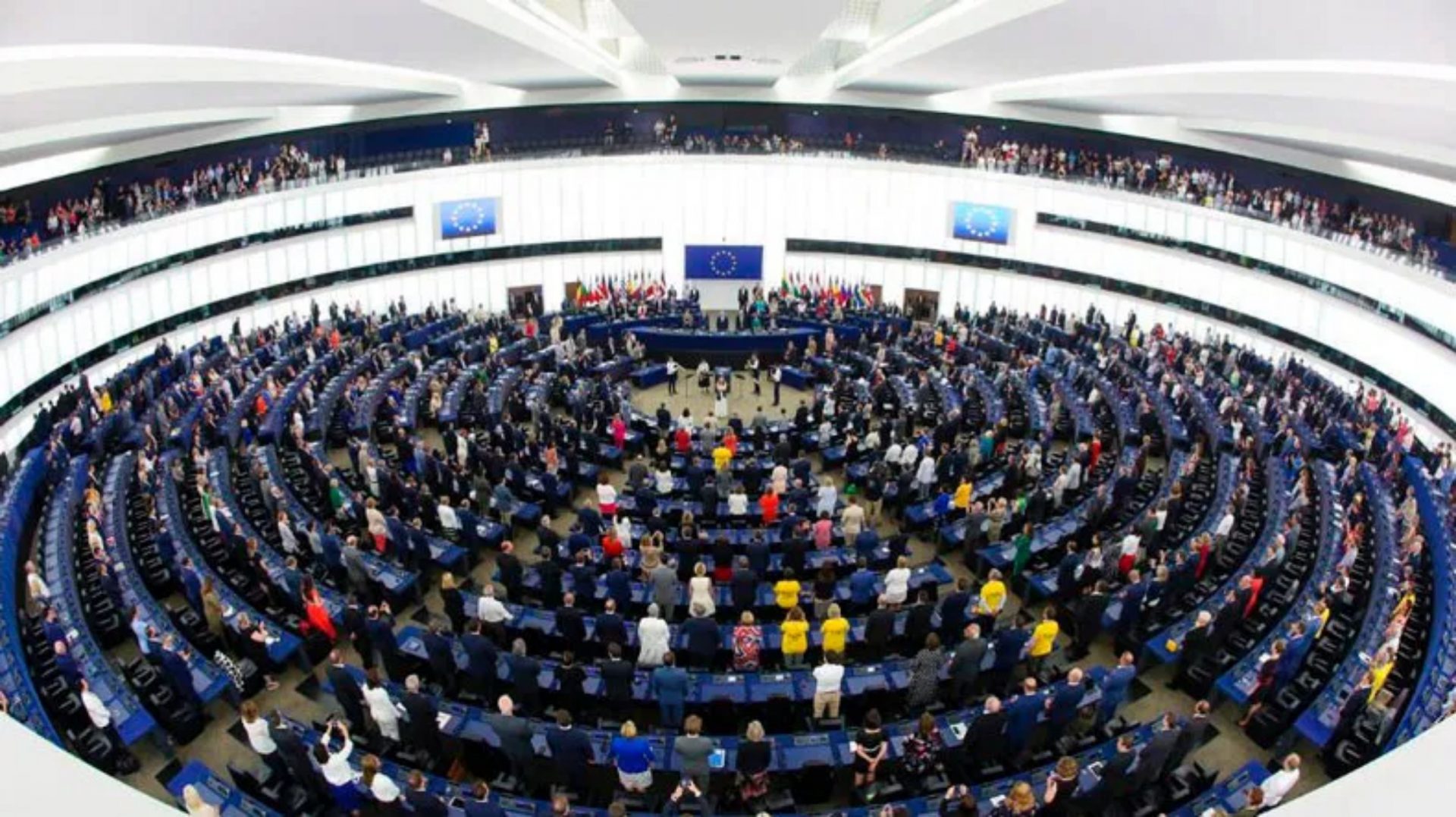The European Parliament plays a crucial role in shaping the future of Europe and the world. As the only directly elected institution of the European Union, it represents the voice of over 500 million citizens from all 27 member states. With its powers growing steadily over the years, the European Parliament is now one of the most influential bodies in the world, shaping policies and legislation that affect everything from trade and security to the environment and human rights. But what exactly is the role of the European Parliament, and why is it so important? In this article, we’ll explore the key functions of the European Parliament, its impact on global affairs, and why it matters to all of us, regardless of where we live. So, whether you’re a student of politics, a business owner, or simply a concerned citizen, read on to discover the vital role played by the European Parliament in today’s world.
History and evolution of the European Parliament
The European Parliament has its roots in the European Coal and Steel Community, which was established in the aftermath of World War II. The Community was founded with the aim of pooling the coal and steel resources of six European countries: Belgium, France, Germany, Italy, Luxembourg, and the Netherlands. The idea was to create a common market for these resources, which would help to promote economic cooperation and prevent future wars.
The European Parliament was established in 1952 as an advisory body to the High Authority of the European Coal and Steel Community. Initially, it was composed of just 78 members, who were appointed by the national parliaments of the six member states. However, over the years, the Parliament’s powers and responsibilities have steadily grown. In 1979, the Parliament was directly elected for the first time, with citizens of the member states casting their votes for the candidates of their choice. Today, the European Parliament has 705 members, who are elected every five years.
The role of the European Parliament in the European Union
The European Parliament is one of the three main institutions of the European Union, alongside the European Commission and the Council of the European Union. Its role is to represent the interests of the citizens of the EU, and to ensure that their voices are heard in the decision-making process.
One of the key functions of the European Parliament is to pass legislation. The Parliament has the power to initiate, amend, and veto legislation, and it plays a crucial role in the EU’s legislative process. In addition to passing laws, the Parliament also has the power to approve the EU’s budget, and to oversee the work of the other EU institutions.
Another important role of the European Parliament is to hold the other EU institutions to account. The Parliament has the power to question the European Commission and the Council of the EU, and to demand answers on a wide range of issues. This helps to ensure transparency and accountability in the EU’s decision-making process.
The importance of the European Parliament in shaping EU policies
The European Parliament has a significant impact on the policies and legislation of the European Union. As the only directly elected institution of the EU, it represents the voice of the people, and its decisions can have a profound impact on the lives of citizens across the continent.
One of the most important areas where the European Parliament has an impact is in the field of trade. The Parliament has the power to approve or reject international trade agreements, and it plays a crucial role in ensuring that these agreements are fair and transparent. In recent years, the Parliament has been particularly active in this area, rejecting the controversial ACTA agreement in 2012, and demanding greater transparency in negotiations for the TTIP agreement with the United States.
The European Parliament also plays an important role in shaping EU policy on issues such as the environment, human rights, and social justice. Through its legislative powers, the Parliament can help to ensure that these issues are given the attention they deserve, and that EU policies are aligned with the values and priorities of its citizens.
The European Parliament’s legislative process
The legislative process of the European Parliament is complex, but it is designed to ensure that all voices are heard and that decisions are made in a transparent and democratic manner.
The process begins with a proposal from the European Commission, which is then reviewed by the relevant parliamentary committee. The committee will then make amendments to the proposal, which are debated and voted on by the full Parliament. If the proposal is approved, it becomes law, and member states are required to implement it.
Throughout the legislative process, the European Parliament is required to consult with a wide range of stakeholders, including NGOs, businesses, and citizens. This helps to ensure that the legislation is informed by a broad range of perspectives and that it reflects the needs and concerns of all those affected by it.
The European Parliament’s role in ensuring transparency and accountability
One of the key roles of the European Parliament is to ensure that the other EU institutions are transparent and accountable in their decision-making. To this end, the Parliament has a number of mechanisms in place to oversee the work of the European Commission and the Council of the EU.
One of the most important of these mechanisms is the power of the Parliament to approve or reject the appointment of the European Commission. Before taking office, the Commission must be approved by the Parliament, which can reject the entire Commission or individual Commissioners if it deems them unsuitable.
In addition to this, the Parliament also has the power to conduct inquiries into the work of the other EU institutions. This can be a powerful tool for holding those institutions to account and ensuring that they are acting in the best interests of the citizens of the EU.
The European Parliament’s impact on individual citizens and member states
The decisions of the European Parliament can have a profound impact on the lives of individual citizens and member states. For example, EU legislation on issues such as consumer protection, environmental standards, and workers’ rights can have a significant impact on the everyday lives of citizens across the EU.
In addition to this, the European Parliament plays an important role in ensuring that member states adhere to EU law and meet their obligations under EU treaties. This helps to ensure that the EU operates as a cohesive and effective entity, with all member states working together towards common goals.
Challenges faced by the European Parliament
Despite its many achievements, the European Parliament faces a number of challenges in the years ahead. One of the biggest challenges is the rise of nationalist and populist movements across Europe, which have been critical of the EU and its institutions.
Another challenge is the ongoing debate over the future of the EU itself. Some have called for greater integration and a more federalist model of governance, while others have advocated for a looser, more intergovernmental approach.
Finally, the European Parliament must also grapple with the challenges posed by a rapidly changing world. Issues such as climate change, technological disruption, and geopolitical instability will require the EU to be agile and responsive in its decision-making.
Future of the European Parliament
Despite these challenges, the European Parliament remains a vital institution (next elections will be in June 2024) in the global political landscape. Its role in shaping the policies and legislation of the EU, and its commitment to transparency and accountability, make it a powerful force for good in the world.
Looking to the future, the European Parliament will need to continue to adapt and evolve in response to the changing needs of its citizens and the world at large. This will require a renewed commitment to democratic values, a willingness to embrace new technologies and ways of working, and a recognition of the importance of international cooperation in tackling the challenges of the 21st century.
Conclusion
The European Parliament is a vital institution that plays a crucial role in shaping the future of Europe and the world. Through its legislative powers, its oversight of the other EU institutions, and its commitment to transparency and accountability, the Parliament helps to ensure that the voices of the citizens of the EU are heard and that their interests are protected. Despite the challenges it faces, the European Parliament remains a beacon of hope and a powerful force for positive change in the world. As citizens of the EU and the wider world, we must all do our part to support and strengthen this vital institution, and to work towards a brighter future for all.
We acknowledge The European Times for the information.



